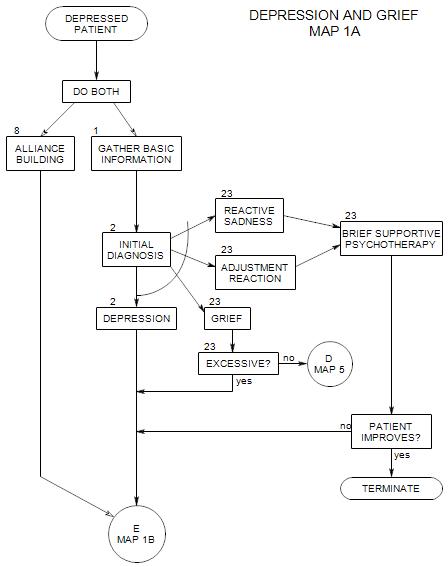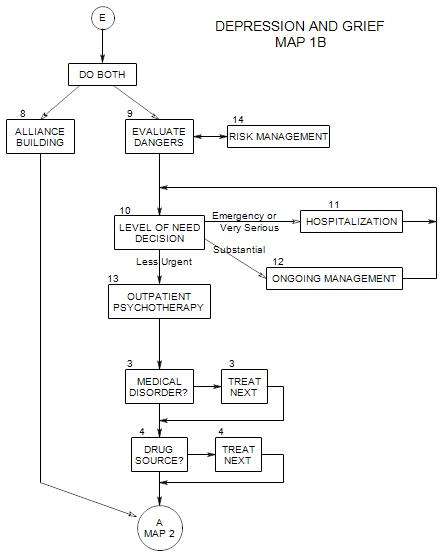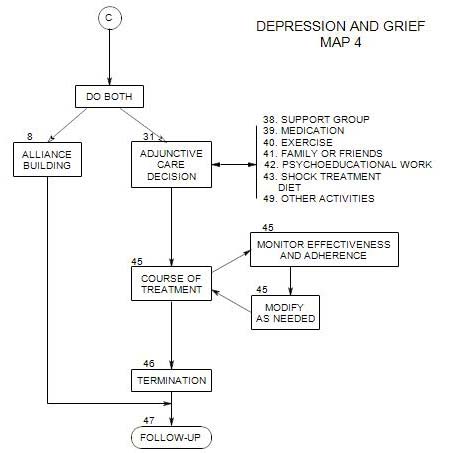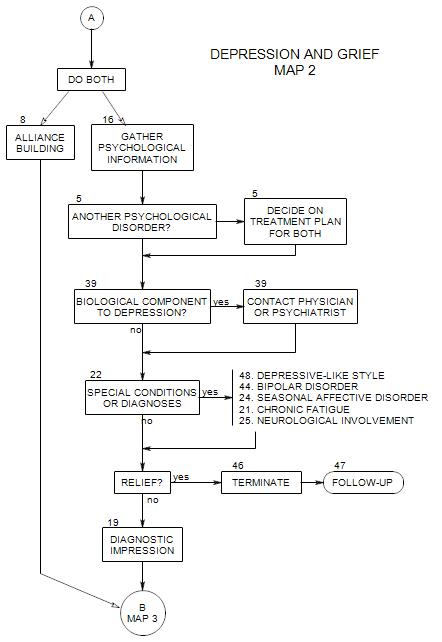
SECTIONS: 5 | 8 | 16 | 19 | 21 | 22 | 24 | 25 | 39 | 44 | 46 | 47 | 48
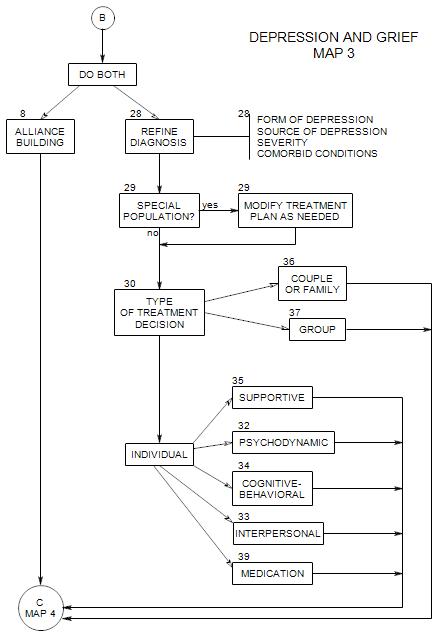
SECTIONS: 8 | 28 | 29 | 30 | 32 | 33 | 34 | 35 | 36 | 37 | 39
-
Follows from Section 46 on Maps 2 and 4.
Different therapists have different policies about follow-up sessions. Some make it an automatic expectation to schedule a session after three or six months. This has the advantage of maintaining contact and not allowing the patient to feel ‘kicked out the door’ – which could happen even if the patient chose to leave.
Other therapists assume that patients will call again if they need to, and may make that an explicit part of an ongoing contract.
Different decisions can apply to different patients, following termination. You can offer follow-up sessions to some and not to others.
Once a patient has terminated and no longer is planning to follow up, you may decide to continue with…
- other family members who have contributed to the patient’s depression in the past. In fact, they may have been waiting for your termination with this patient before contacting you. This can be tricky, if the initial patient was thinking of coming back in the future and takes your work with another family member as a shift of allegiance and a rejection. Alternatively, it may be seen as vindication of the first patient’s interpretation of the family situation, or as support for the entire family. Generally it pays to clear any move of this kind with the first patient before moving on.
- marital or family therapy around issues of communication and support for each other.
47a. Relapse
For unipolar depression, the probability of relapse is greater if…
- there were prior episodes.
- there is environmental stress.
- the patient lacks social support.
- the patient has a history of neuroendrocrine dysregulation, as shown by the dexamethasone suppression test [DST] or thyrotropin-releasing hormone test [TRH].
